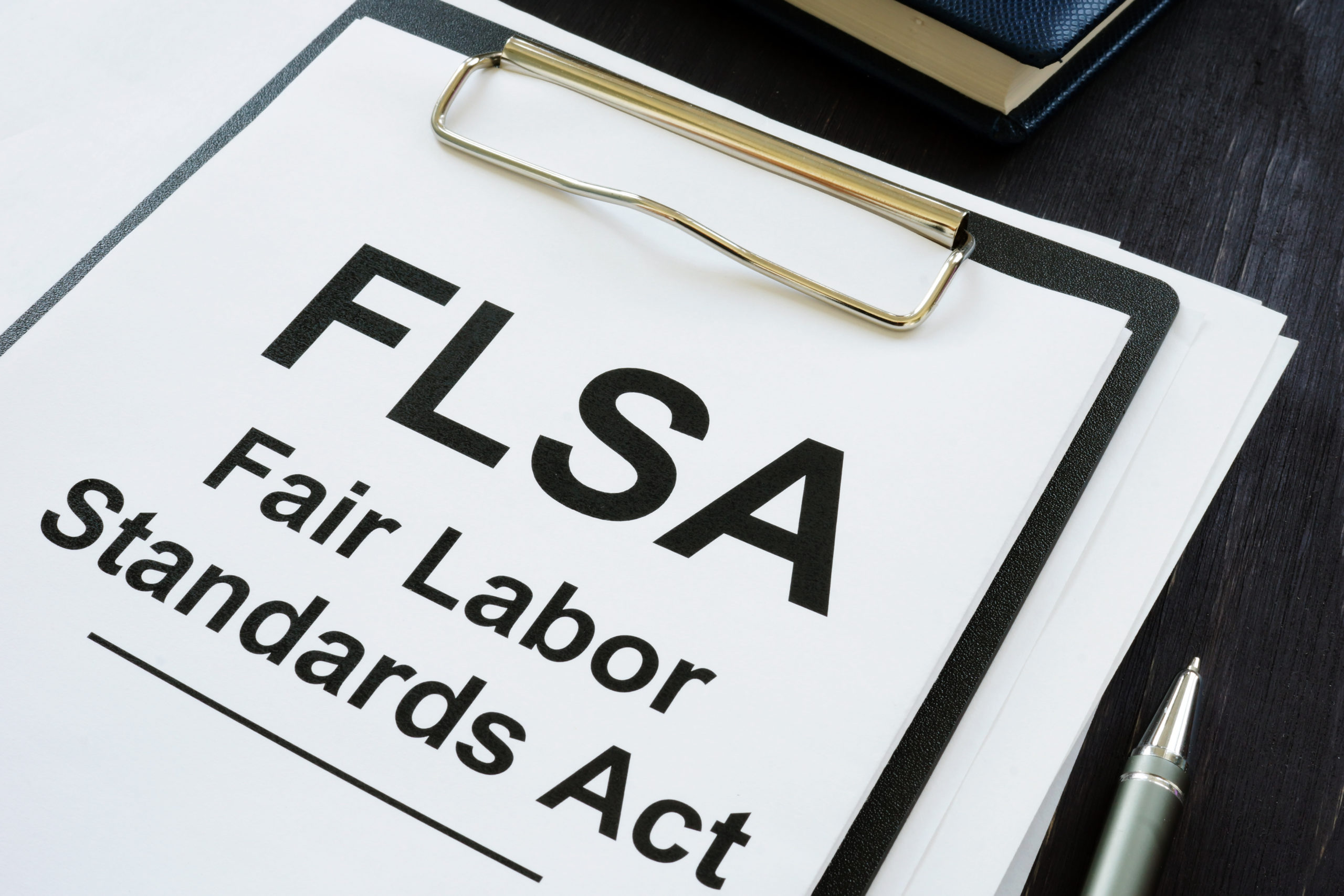Two new final rules have been released by the Department of Labor (“DOL”) which update the Fair Labor Standards Act (“FLSA”). These rules will impact how an employer calculates paying an employee overtime under the FLSA.
1. The DOL released a final rule on September 24, 2019, which makes adjustments to overtime exemption rules under the FLSA. The final rule became effective January 1, 2020, and as of now, employers must be in compliance with this overtime change.The new rule raises the minimum salary threshold, making more employees eligible for overtime. Under the new rule, for an employee to be exempt from FLSA overtime requirements, an employee’s salary must be $684 per week or $35,568 per year. The new rule further raises the minimum salary necessary for an employee to be exempt from overtime as a highly-compensated employee to $107,432 annually.
2. On December 12, 2019, the DOL announced a final rule which clarifies and provides guidelines on how to calculate the regular rate of pay. The final rule will be effective January 15, 2020, and it focuses on clarifying if certain benefits and perks must be included in a regular rate of pay calculation.
The regular rate of pay requirements are used to define what an employer includes in a time and a half calculation for paying overtime to employees under the FLSA guidelines. The final rule clarifies that an employer may exclude the following from an employee’s regular rate of pay:
- parking benefits, wellness programs, onsite specialist treatments, gym access and fitness classes, employee discounts on retail goods and services, certain tuition benefits, and adoption assistance;
- unused paid leave;
- payments of certain penalties employers must pay under state and local scheduling laws;
- reimbursed expenses such as cellphone plans, credentialing exam fees, organization membership dues and travel expenses that don’t exceed the maximum travel reimbursement under certain regulations;
- sign-on and longevity bonuses;
- employer provided coffee and snacks;
- discretionary bonuses (the DOL further clarified that the label given to a bonus doesn’t determine whether it is discretionary); and
- contributions to benefit plans for accidents, unemployment, legal services and other events that could cause a financial hardship or expense in the future.
It is critical that employers review these final rules to determine if their overtime payment structure is in compliance with the FLSA. For more information on these final rules or other legal issues, contact PLDO Attorney Katherine D. Bishop at 401-824-5100 or email kbishop@pldolaw.com.
Disclaimer: This blog post is for informational purposes only. This blog is not legal advice and you should not use or rely on it as such. By reading this blog or our website, no attorney-client relationship is created. We do not provide legal advice to anyone except clients of the firm who have formally engaged us in writing to do so. This blog post may be considered attorney advertising in certain jurisdictions. The jurisdictions in which we practice license lawyers in the general practice of law, but do not license or certify any lawyer as an expert or specialist in any field of practice.


